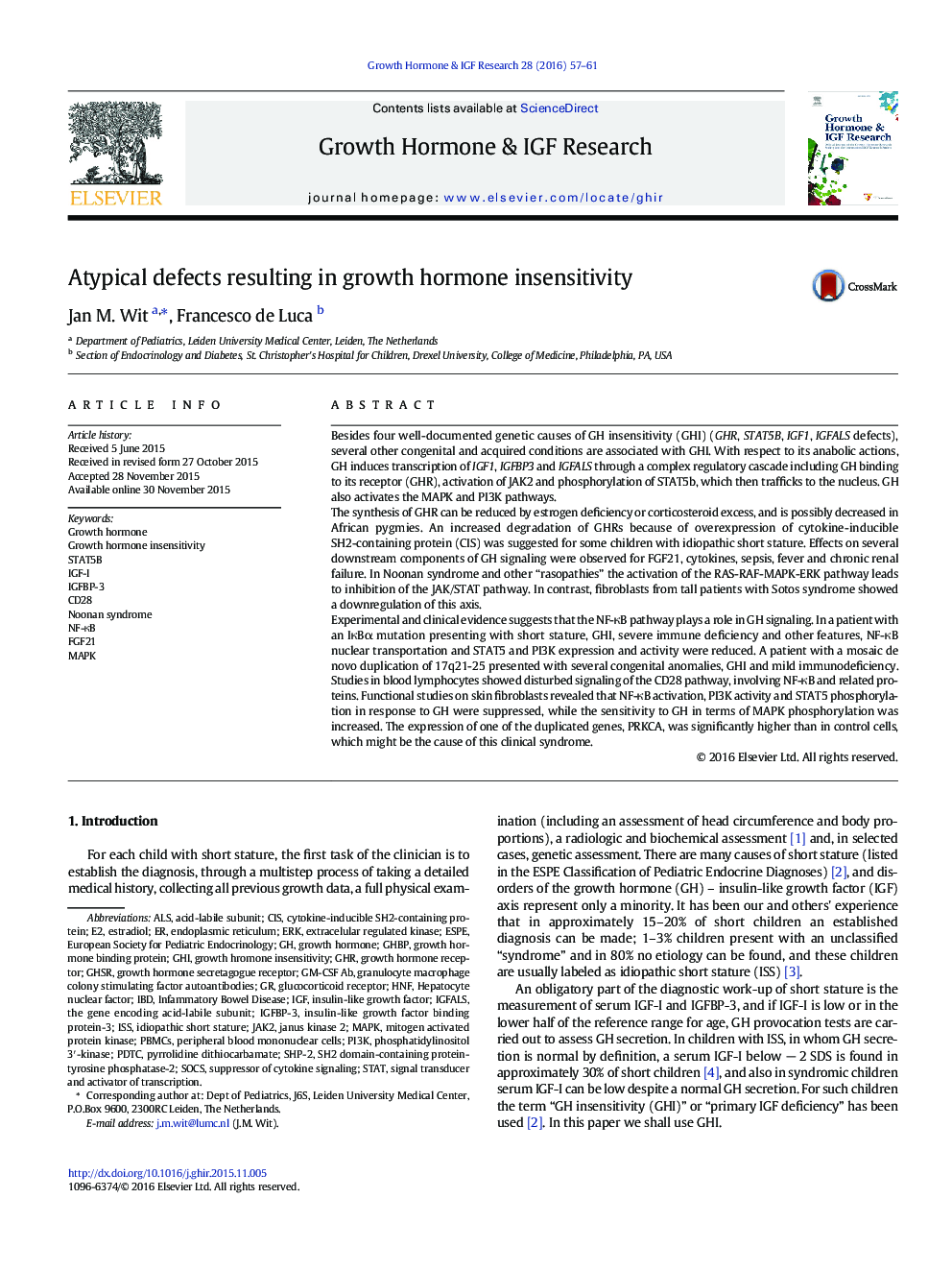| Article ID | Journal | Published Year | Pages | File Type |
|---|---|---|---|---|
| 5901771 | Growth Hormone & IGF Research | 2016 | 5 Pages |
Abstract
Experimental and clinical evidence suggests that the NF-κB pathway plays a role in GH signaling. In a patient with an IκBα mutation presenting with short stature, GHI, severe immune deficiency and other features, NF-κB nuclear transportation and STAT5 and PI3K expression and activity were reduced. A patient with a mosaic de novo duplication of 17q21-25 presented with several congenital anomalies, GHI and mild immunodeficiency. Studies in blood lymphocytes showed disturbed signaling of the CD28 pathway, involving NF-κB and related proteins. Functional studies on skin fibroblasts revealed that NF-κB activation, PI3K activity and STAT5 phosphorylation in response to GH were suppressed, while the sensitivity to GH in terms of MAPK phosphorylation was increased. The expression of one of the duplicated genes, PRKCA, was significantly higher than in control cells, which might be the cause of this clinical syndrome.
Keywords
PI3KFGF21Janus Kinase 2IGFBP-3Cytokine-inducible SH2-containing proteinCD28NF-κBSOCSPDTCGHSRSHP-2PBMCsIGFALSJAK2GHRGHBPIGF-IISSIBDERKSTAT5BCISIGFHnfMAPKSTATEstradiolALSGrowth hormone insensitivitypyrrolidine dithiocarbamatesuppressor of cytokine signalingperipheral blood mononuclear cellsNoonan syndromeendoplasmic reticulumGHIhepatocyte nuclear factorInsulin-like growth factorphosphatidylinositol 3′-kinaseIdiopathic short statureSignal transducer and activator of transcriptionGrowth hormoneAcid-labile subunitInsulin-like growth factor binding protein-3Growth hormone binding proteinmitogen activated protein kinasegrowth hormone secretagogue receptorgrowth hormone receptorglucocorticoid receptor
Related Topics
Life Sciences
Biochemistry, Genetics and Molecular Biology
Endocrinology
Authors
Jan M. Wit, Francesco de Luca,
